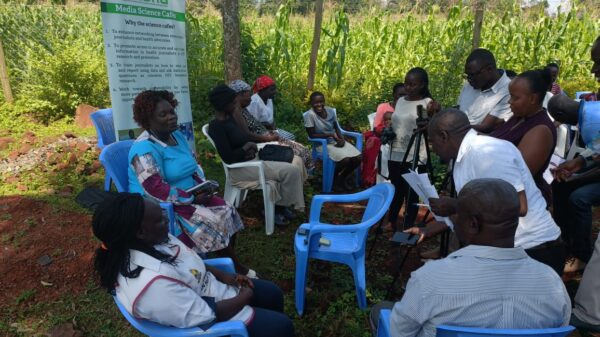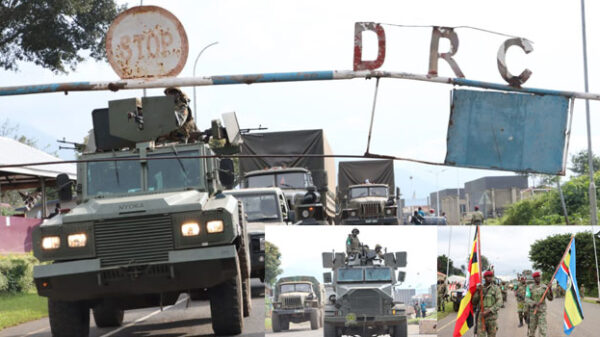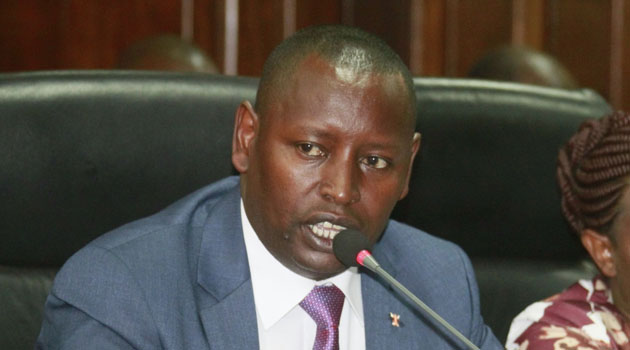NAIROBI, October 27 – Explosions of ammunition stockpiles have killed over 4,000 people and injured over 5,000 others in Africa in the last 10 years, according to a UN expert.
The explosions have been caused by poor storage and temperature variations both of which are pegged to the lack of proper information on storage among the people responsible.
The Special Advisor the United Nations Office of Arms and Disarmament Affairs on Ammunition and Explosives Adrian Wilkinson told Capital News during an exclusive interview that the situation may worsen, ‘should governments not intervene in good time.’
“In the last ten years there have been over 154 explosions in ammunition depots resulting in over 4,000 deaths and at least 5,000 to 6,000 casualties,” Mr Wilkinson said.
He said 40 percent of the explosions were caused by ‘degradation of chemical propellants within the ammunitions’ and 30 percent by human error, through such dangerous habits as smoking in ammunition storage zones.
Degradation of chemical propellants, he explained, meant that the explosives used to force the shells out of the barrel gun wear out and become unstable and eventually explode into flames.
This is best averted by segregating the chemical from others and to destroy it, according to Mr Wilkinson.
He said recent disasters occasioned by ammunition explosions in Kenya’s neighbourhood include the March 2007 incident in Maputo, Mozambique, where an ammunition explosion killed 105 people and left at least 400 others seriously injured. This is perhaps the worst ammunition disaster on the continent in the past decade.
“The reason that these explosions are happening is because many countries don’t know what ammunition they have and the condition of the ammunition. They also don’t have people who are qualified and trained to do the sort of surveillance and inspection that is necessary,” he said.
According to him, African countries are most vulnerable, gauging from the regularity with which the explosions are being witnessed. In Juba, Southern Sudan, there have between two to three explosions in their ammunition depots in the last four years, he said.
African parliamentarians have consequently been challenged to take the initiative and legislate policies and laws that would help reduce the incidences.
An international legislators’ forum, dubbed Parliamentary Forum on Small Arms and Light Weapons, based in Stockholm Sweden has published a handbook, aimed at guiding parliamentarians in Africa on the issue. The handbook book is titled: Conventional Ammunition Stockpiles Handbook, 2008. It was developed by the forum, under the guidance of Mr Wilkinson.
The 18-page handbook details ammunition disasters around the globe and their impact on society. The book also informs parliamentarians of stockpile management, traces the origin of ammunition stockpile problems and stipulates the role of the parliamentarians in the conventional ammunition issue.
It also contains a bibliography of international resolutions, agreements, frameworks and instruments perceived to be most important in resolving the issue which has been described by Mr Wilkinson as ‘serious’.
“We are calling on parliamentarians to review legislation and look at if the law is appropriate for the safe storage of ammunition. They should also look at the structure of the armed forces and ensure that they have people who have been trained to manage ammunition storage and make sure budgetary resources are enhanced towards safe storage of ammunitions. They should also make sure that people are allowed to live to close to the ammunition stockpiles like it happened in Mozambique, unless they have established the safe areas,” he added.








































